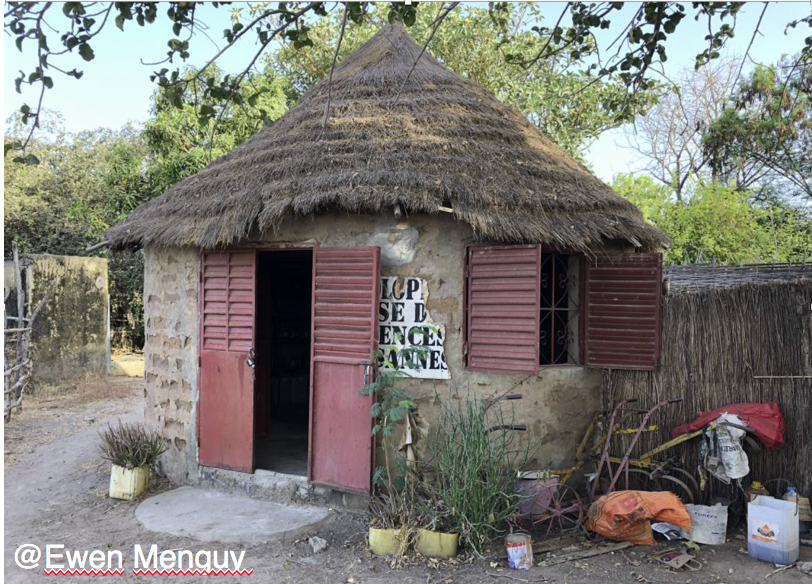SeedAttach

SeedAttach
SeedAttach - Community seed banks for social justice and conservation of biodiversity? Networks of actors and dynamics of seed attachment
In the last decades, there has been a dramatic decline in agrobiodiversity. Many actors highlight the need for conservation more integrated within the local context and embedded in the local knowledge system. In this context, community seed banks (CSBs) emerged as a means to address both diversity conservation and social justice issues by: (i) supporting the collective management of agrobiodiversity by the communities; (ii) contributing to the socio-ecological resilience through technical and organizational capacities and (iii) enhancing climate-resilient seeds to withstand in local climates. The principles of social justice include equitable access to diversity and the recognition of the farmer’s knowledge as managers of cultivated diversity. CSB has been on the rural development agenda for the last 30 years but scientific literature on its design, implementation and overall impact is still limited and does not address the cross-characterization of the biological and social dynamics associated with CSBs.
The general objective of the SeedAttach project is to investigate the conditions under which social justice and agrobiodiversity conservation are achievable and compatible in the context of community seed banks. Increasing our knowledge on the characterization and effects of the introduction of new norms for the agrobiodiversity conservation (as is the case with CSBs) will allow us to identify governance modalities considered as fair and sustainable by the communities. Indeed, beyond the production of knowledge and methodologies, the objective of the SeedAttach project is also to provide inputs and share knowledge with the different actors involved in the implementation of the mechanisms that support the sustainable use of biodiversity in various socio-ecosystems.
Four specific objectives and related research questions are identified to help accomplish the main objective of the SeedAttach project.
- Characterizing the socio-cognitive and emotional transformations induced by the CSBs. This specific objective analyses the transformations in terms of value systems, the diversity of relations between people and seeds and the status farmers associate to seeds. What are the different nationalities involved in in situ seed conservation? Do certain models of CSBs allow for better integration of farmers’ knowledge and value systems than others?
- Characterizing the diversity conserved by CSBs and the modalities of its access by users. This specific objective assesses what is conserved in CSB and how they provide access to a diversity of crops and varieties to the members of a community. Do CSBs improve access to and conservation of the diversity of locally adapted crops and varieties? Do the conserved diversity and the equity of access within the community depend on the model of the CBS?
- Define a methodological framework for integrating the dynamics of diversity conservation and value systems. This specific objective proposes a method that allows analysing simultaneously the socio-cognitive and biological dimensions of conservation. How is it possible to account for both the socio-cognitive and biological dynamics associated with CSBs? What approach would allow representing both seed circulation networks and associated values?
- Discuss and co-produce the principles of social justice and the modalities of seed conservation in CSBs. This specific objective discusses and defines with the diversity of actors involved in the implementation of CSBs, the management methods that will ensure the conservation of diversity while respecting the principles of social justice. Are certain models of CSBs more responsive to issues of social justice and biodiversity conservation?
The project focuses on two CSBs in Senegal located in Lissar in the groundnut basin and Guédé Chantier in the north of the country.
In order to cross-characterize socio-cognitive and biological dynamics, SeedAttach involves a diversity of discipline (social anthropology, agronomy, ethnobotany, environmental psychology and population genetics).
Through the methods used (forum theatre, participatory video, sound photographic film, participatory modelling) and the accompanying posture adopted, the project is transdisciplinary. It has been co-constructed with non-academic partners as farmers’ organization and professionals in sociocultural mediation, which are used to create spaces for exchange with a diversity of audiences.
Beyond the production of knowledge and methodologies, the project will support the actors involved in the implementation of CSBs for the sustainable and fair use of biodiversity in various socio-ecosystems.
Responsable du projet (au sein de SENS)
Frédérique Jankowski
Equipe mobilisée au sein de SENS
- François Bousquet
- Vanesse Labeyrie
- Didier Bazile
- Pascale Moiti-Maizi
Dates début et fin des travaux
janv. 2021 — janv. 2024
Terrains
Sénégal (Région de Thiès et de Podor)
Partenaires
- IRD - UMR DIADE
- CIRAD - UMR AGAP
- CIRAD - UMR MOISA
- CNRS - CEFE
- ISRA - BAME
- ISRA - CERAAS
- ASPSP - Association Sénégalaise des Producteurs de Semences Paysannes
- Kaddu Yarrax – Compagnie professionnelle de théâtre forum
- Transit Photographie